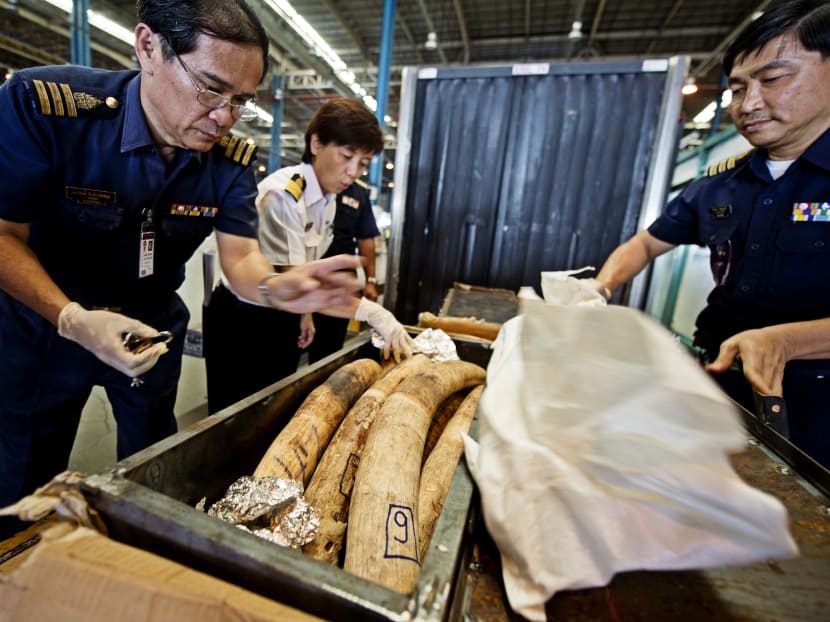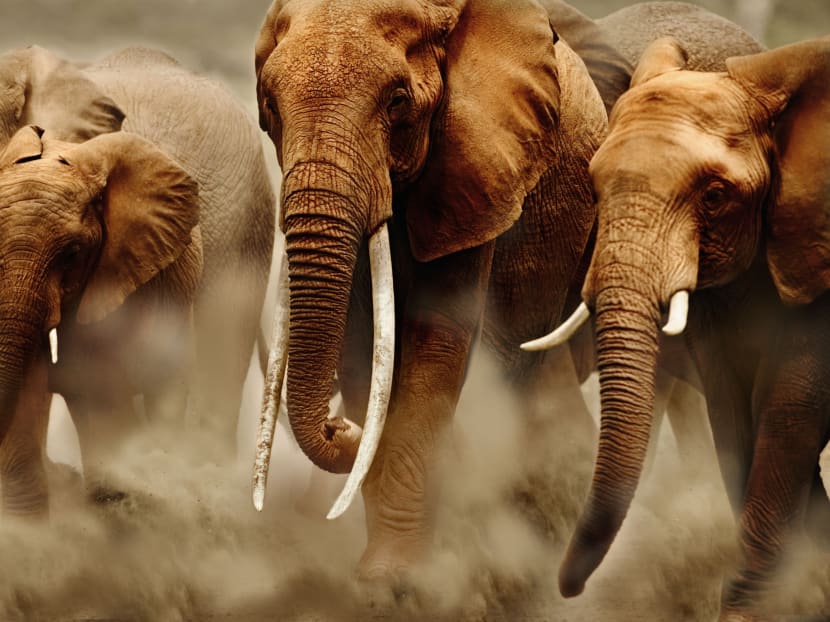‘Do more to intercept illegal ivory shipments’
SINGAPORE — Although Singapore has become less of a market for ivory, two conservation groups say the Republic could do more yet in preventing the contraband from landing in other countries.


SINGAPORE — Although Singapore has become less of a market for ivory, two conservation groups say the Republic could do more yet in preventing the contraband from landing in other countries.
Calling for greater enforcement to intercept illegal ivory shipments transiting through Singapore — despite the authorities here seizing a major haul last month — wildlife trade monitoring network Traffic and the World Wide Fund for Nature Singapore pointed to illegal ivory tusks that have reportedly passed through Singapore undetected.
Last September, the Vietnamese authorities seized 19kg of ivory from a woman who had taken a Vietnam Airlines flight from Singapore. And last July, 405 tusks that had passed through Singapore were seized in Johor, the groups said.
Last month, however, the Agri-food and Veterinary Authority (AVA) and Singapore Customs intercepted a shipment of about 1.8 tonnes of raw ivory tusks declared as “waste paper” from Africa — the second-largest seizure since 2002.
Ivory is generally smuggled from Africa to Asia. And Vietnam, Cambodia, Thailand, Singapore and Malaysia, according to Traffic South-east Asia’s Senior Programme Officer Kanitha Krishnasamy, are the region’s major transit points.
The amount of illegal ivory seized globally reached a record-high of 38.8 tonnes in 2011, according to the Elephant Trade Information System, which tracks seizures by countries party to the Convention on International Trade in Endangered Species (CITES). This amounted to at least 2,500 elephants killed, said Ms Kanitha. There were 17 large-scale seizures (where over 800kg is seized) in 2011, more than double the previous high of eight in 2009.
She added that closer collaboration with ivory-exporting countries could also help enforcement, as the authorities there are more likely to have access to information on shipping routes or individuals. “A lot of times we see the buck stop at seizures. There should be more effort put into investigating who’s behind the trade, how things are being moved around, what else is involved,” she said.
International trade in ivory has been banned under the CITES since 1989. In Singapore, domestic trade in specimens acquired before 1990 — when elephants became listed as protected species — is allowed.
CITES permits must be obtained from the AVA by anyone who wants to import or re-export ivory products as personal effects, and they must have documentary proof that their specimens were legally acquired.
An AVA spokesperson added that ivory traders here are required to register their pre-convention ivory with the authority. The AVA tracks their stock balances during inspections.
Meanwhile, a survey of 100 shops here by Traffic and WWF Singapore found 19 selling ivory that vendors said were pre-convention stocks, down from 55 out of 100 surveyed in 2002. Vendors reported that ivory products were no longer popular here.






